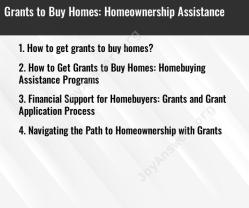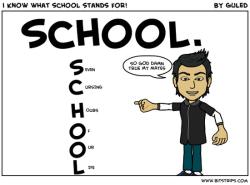How much cash do you need to buy a home?
The amount of cash you need to buy a home can vary significantly depending on several factors, including the cost of the home, your down payment, closing costs, and other expenses. Here's a breakdown of the key components that contribute to the cash you'll need:
Down Payment:
- Your down payment is a substantial part of the cash you'll need to purchase a home. The size of the down payment is typically a percentage of the home's purchase price. Common down payment percentages include 20%, 10%, or even as low as 3.5% for certain government-backed loans. For example, if you're buying a $300,000 home and putting down 20%, your down payment would be $60,000.
Closing Costs:
- Closing costs encompass various fees and expenses associated with the home purchase process. These can include fees for loan origination, appraisal, credit reports, title insurance, escrow services, and more. On average, closing costs can range from 2% to 5% of the home's purchase price. Using the $300,000 home as an example, closing costs at 3% would amount to $9,000.
Home Inspection and Appraisal:
- It's advisable to have a home inspection and, in most cases, an appraisal before purchasing a home. While these are not always required upfront, they are essential for understanding the condition of the property and ensuring its value. Budget for these costs, which can range from a few hundred to a few thousand dollars.
Earnest Money Deposit:
- When making an offer on a home, you typically provide an earnest money deposit as a sign of your commitment to purchase. The amount can vary but is often around 1% to 3% of the purchase price. If your offer is accepted, the earnest money is typically applied to your down payment or closing costs.
Moving Expenses:
- Don't forget to budget for the cost of moving your belongings to the new home. This can include hiring movers, renting a truck, or other related expenses.
Homeownership Costs:
- After buying a home, you'll have ongoing expenses like property taxes, homeowner's insurance, maintenance, and utilities. Ensure you have enough cash to cover these costs.
Reserves and Emergency Fund:
- It's a good idea to have a financial cushion for unexpected expenses, such as repairs or job loss. Many financial experts recommend having three to six months' worth of living expenses in an emergency fund.
In summary, the cash you need to buy a home includes your down payment, closing costs, inspections, moving expenses, and an emergency fund. The specific amount will depend on the price of the home, your financing, and local factors. It's crucial to work with a real estate agent and a mortgage lender to determine the exact cash requirements for your particular home purchase. Keep in mind that programs and loans may be available to help with down payment and closing cost assistance, especially for first-time homebuyers.
How much cash do you need to buy a home?
The amount of cash you need to buy a home depends on a number of factors, including the price of the home, your down payment, and your closing costs.
In general, you will need to make a down payment of at least 3.5% of the purchase price of the home if you are getting a conventional loan. However, you may be able to qualify for a down payment assistance program that can reduce your down payment requirement.
Closing costs typically range from 2% to 5% of the purchase price of the home. These costs can include things like appraisal fees, title insurance, and loan origination fees.
So, if you are buying a home for $300,000 and you are making a 3.5% down payment, you will need to have at least $10,500 in cash upfront. However, you may also need to factor in the cost of closing costs, which could bring your total upfront cash requirement to $18,000 or more.
What are the financial requirements for purchasing a house?
In addition to having a down payment and closing costs saved up, you will also need to meet certain financial requirements in order to qualify for a mortgage loan. These requirements will vary depending on the type of loan you are getting, but they typically include:
- A good credit score
- A low debt-to-income ratio
- A steady income
How to calculate the down payment and other upfront costs for a home?
To calculate your down payment, simply multiply the purchase price of the home by your down payment percentage. For example, if you are buying a home for $300,000 and you are making a 3.5% down payment, your down payment would be $10,500.
To calculate your closing costs, you can use a mortgage calculator or contact a mortgage lender. Closing costs typically range from 2% to 5% of the purchase price of the home.
Are there down payment assistance programs or options for reducing cash requirements?
Yes, there are a number of down payment assistance programs and options available to help first-time homebuyers and low-income borrowers afford a down payment. Some of the most common down payment assistance programs include:
- FHA loans: FHA loans allow borrowers to make a down payment of as little as 3.5%.
- USDA loans: USDA loans are available to borrowers who are purchasing a home in a rural area. There is no down payment required for USDA loans.
- VA loans: VA loans are available to veterans and active-duty military members. There is no down payment required for VA loans.
- Down payment assistance grants: There are a number of down payment assistance grants available from state and local governments, as well as non-profit organizations.
What financial planning is necessary when saving to buy a home?
When saving to buy a home, it is important to create a budget and track your spending. This will help you to see where your money is going and to make sure that you are saving enough each month to reach your down payment goal.
You should also consider setting up a recurring transfer from your checking account to your savings account each month. This will help you to save automatically and to stay on track with your goal.
If you are struggling to save for a down payment on your own, you may want to consider talking to a financial advisor. They can help you to create a financial plan and to identify down payment assistance programs that you may qualify for.
Here are some additional tips for saving to buy a home:
- Pay off any high-interest debt.
- Avoid taking on new debt.
- Cut back on unnecessary expenses.
- Increase your income.
Buying a home is a major financial commitment, but it is also a rewarding experience. By following these tips, you can save for a down payment and achieve your dream of homeownership.












